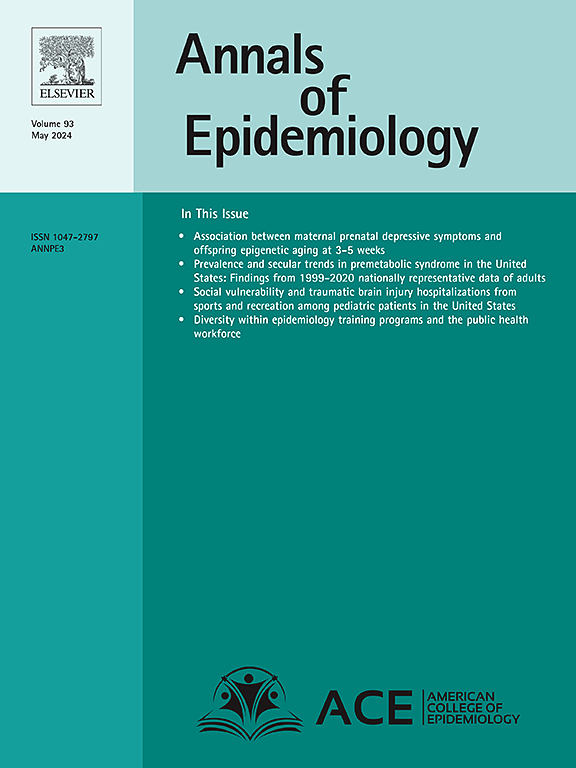Association of birthweight with all-cause and cause-specific premature mortality in the UK: A prospective cohort study
IF 3.3
3区 医学
Q1 PUBLIC, ENVIRONMENTAL & OCCUPATIONAL HEALTH
引用次数: 0
Abstract
Purpose
We investigated the association between birthweight and all-cause and cause-specific premature mortality, and evaluated the effect modification by lifestyle factors.
Methods
This prospective cohort study used data of participants aged 39–71 years from the UK Biobank in 2006–2010 and followed up till the end of 2022. Birthweight was classified into < 1.0 kg, 1.0–<1.5 kg, 1.5–<2.5 kg, 2.5–<4.0 kg, and ≥ 4.0 kg. Cox proportional-hazards models were used to estimate adjusted hazard ratios (aHR) and 95 % confidence intervals (CI) for premature mortality.
Results
Of 221 848 participants, there were 6336 premature deaths (2148 cardiovascular, 624 respiratory, 3040 cancers, 524 other causes). Birthweight was nonlinearly associated with risks of all-cause, cardiovascular, and cancer-related mortality but the association was linear for respiratory and other-cause mortality. Compared to birthweight of 2.5–<4.0 kg, birthweight< 1.0 kg (aHR 1.36, 95 %CI 1.00–1.85) and ≥ 4.0 kg (1.10, 1.02–1.17) were associated with increased risks of all-cause mortality. A similar pattern was observed for cardiovascular mortality, with corresponding aHRs of 1.54 (1.02–2.49) and 1.16 (1.03–1.31) for birthweight of 2.5–<4.0 kg, and ≥ 4.0 kg, respectively. Birthweight≥ 4.0 kg was associated with increased risk of cancer-related mortality (1.11, 1.00–1.22). The mortality risks did not differ significantly across lifestyle scores (all P-interaction>0.05).
Conclusions
Both lower and higher birthweight were associated with increased risks of premature mortality from all causes and cardiovascular diseases, and higher birthweight was associated with increased risk of cancer-related mortality.
在英国,出生体重与全因和特定原因的过早死亡的关系:一项前瞻性队列研究。
目的:研究出生体重与全因和特定原因的过早死亡之间的关系,并评估生活方式因素对其影响的改变。方法:本前瞻性队列研究使用2006-2010年英国生物银行39-71岁参与者的数据,随访至2022年底。结果:在221 848名参与者中,有6336名过早死亡(2148名心血管疾病,624名呼吸系统疾病,3040名癌症,524名其他原因)。出生体重与全因死亡率、心血管死亡率和癌症相关死亡率呈非线性相关,但与呼吸系统死亡率和其他原因死亡率呈线性相关。与出生体重2.5 ~ 4.0 kg相比,出生体重0.05)。结论:低出生体重和高出生体重与各种原因和心血管疾病导致的过早死亡风险增加相关,高出生体重与癌症相关死亡风险增加相关。
本文章由计算机程序翻译,如有差异,请以英文原文为准。
求助全文
约1分钟内获得全文
求助全文
来源期刊

Annals of Epidemiology
医学-公共卫生、环境卫生与职业卫生
CiteScore
7.40
自引率
1.80%
发文量
207
审稿时长
59 days
期刊介绍:
The journal emphasizes the application of epidemiologic methods to issues that affect the distribution and determinants of human illness in diverse contexts. Its primary focus is on chronic and acute conditions of diverse etiologies and of major importance to clinical medicine, public health, and health care delivery.
 求助内容:
求助内容: 应助结果提醒方式:
应助结果提醒方式:


